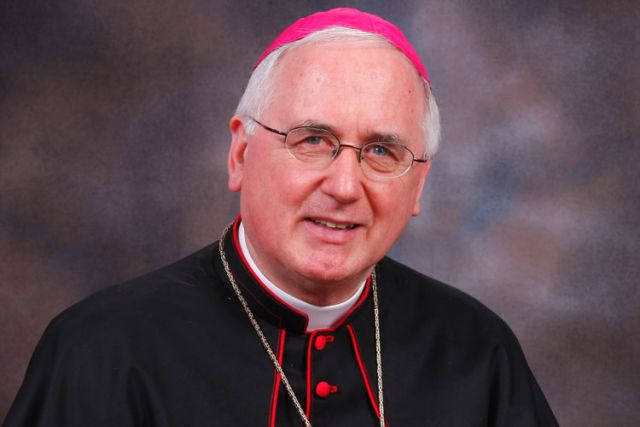Reaction, both positive and negative, began when the decree was announced last fall in Catholic Ottawa, the diocesan newsletter. After the decree was published in January and came into effect in February, however, the subject of eulogies at funerals became national news.
The decree describes the “eulogy” as “speech or writing that offers high praise, particularly for one who has died, without reference to God or to faith.”
“In the Christ funeral, we gather not to praise the deceased but to pray for them,” the decree states. “For this reason, eulogies are not given.”
The firm stance has resulted in a CBC online poll, debate on social media and print, radio and television stories.
“Whenever there’s anything about liturgy or church, despite the fact people don’t go to church, they have something to say about it,” Prendergast said. “The policy of the universal Church is eulogies don’t belong at Mass.”
Other dioceses have similar policies though they may not have put them in writing in the same way, he added.
The archbishop said many ideas from the outer culture had crept into funerals and how we honour the dead.
“If we spend all our time talking about them saying how wonderful they are and canonizing them as some people seem to do at funerals we don’t need to pray for them and I think that would be a great loss,” he said, noting how people misunderstand “the Eucharist as the sacrifice of Christ’s presence being offered for the deceased.”
“The Mass is the supreme gift we can give to a person when they die,” the archbishop said, noting “the homily can make some references to the person’s life of faith,” and the archdiocese will allow a brief, approved three- or four-minute “words of remembrance” to be read by a friend or family member before the funeral Mass begins. Eulogies can be made at the wake, at a reception after the funeral in the parish hall or at graveside, the decree says.
The policy was necessary to “balance what had gotten out of hand,” the archbishop said. It took two years of work by the diocesan presbyteral council made up of priests with a wide range of experience and differing views on how to deal with grieving families, he said.
Once the council came to a common conclusion, the archbishop issued the decree.
Prendergast said he believes the implementation of the policy has “gone fairly smoothly” in that he has not heard from priests that they have had problems.
He recalled some “disasters” that took place in the past, inappropriate behaviour such as someone taking a beer bottle out in church or “toasting the deceased with a fishing rod.”
“Those things belong in a pub or a bar, but they don’t belong in a Mass,” Prendergast said.
Just before the policy went into effect in early February, a permanent deacon died and the family had four people lined up to speak at his funeral. Prendergast said he could not allow it. So, one person gave the “words of remembrance” prior to the Mass, while the others spoke at the reception afterwards.
The diocese has to have “one policy for everybody,” the archbishop said. This includes politicians.
“We are planning to inform protocol officers in the Government of Canada that this is the situation in the archdiocese of Ottawa.”
Those who wish to have eulogies at a service can opt for a Liturgy of the Word and omit the Mass as has happened in the case of some prominent Canadians recently, the archbishop said.
“I’m not in favour of that in general,” he said. “We should have a funeral Mass for a Catholic. That’s the normal thing. It’s normal that we pray, and give him the best we have, and the best we have is to offer the Eucharist.
“When people say I’d rather have the eulogy than have Mass then you know we have lost the sense of Catholic life,” Prendergast said.
It’s important to say we pray for God’s mercy, to pray for mercy in God’s judgment, he said. We don’t take that mercy for granted.
“I’m trying to preserve for people the richness of the Catholic Mass,” he said. “If we don’t do this now we will lose a great treasure. I don’t want their children or their children’s children not to have this.”

